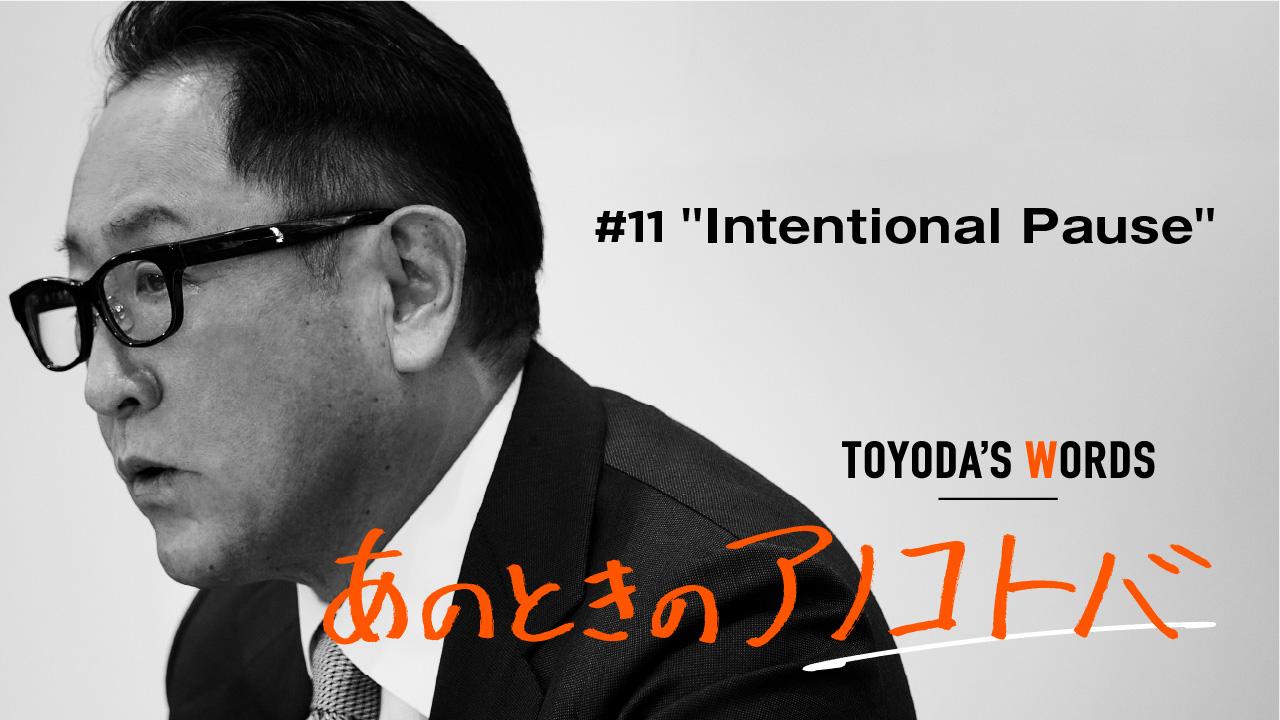
Akio has defined a "pause" as a period of transition in the company's operations; a time to pursue forward-looking initiatives for sustainable growth.

“We want to describe this period as our ‘intentional pause,’” said Akio Toyoda at Toyota’s financial results press briefing in May 2014. In the previous five years, Toyota had faced one difficult situation after another: the Global Financial Crisis, Toyota’s recall crisis, the 2011 Great East Japan Earthquake, and harsh conditions in Japan’s business environment, like an ultra-strong yen. As the company seemed to have recovered from its hardships, analysts expected the automaker to go on the counteroffensive with an increase in sales and profits. However, Toyota’s forecast fell below market expectations. This announcement could easily have triggered a sell-off by disappointed investors, but that did not happen, thanks in part to Akio’s explanation to the market.
“We want to allocate resources for the future and proactively implement reforms and forward-looking initiatives,” he explained. “We want to describe this period as our ‘intentional pause.’ We pursue sustainable growth—we’re focused on translating this temporary interlude into future growth.”
Akio delivered the message that, from a management perspective, this “pause” actually means a transition phase necessary for continued growth over the medium- to long-term.
Eight years on, Akio revisited that message on a different occasion. At a company-wide meeting to discuss management issues on March 9, 2022, employees shared how suppliers in Japan had suffered from the repeated cycle of aggressive recovery production and sudden stoppages caused by parts shortages. One management member also warned that suppliers had reached their limits. After hearing this discussion, Akio made the following comment:
“We are now dealing with a crisis. As such, we have decided to revise our current production plan to align more closely with this reality. I want to designate the period from April to June as an ‘intentional pause.’ Based on the circumstances our suppliers are facing, we should formulate a plan that ensures a sound work environment with safety and quality as top priorities.”
Despite his use of the same phrase, the situation is completely different from eight years ago. What did Akio specifically mean by “intentional pause” this time?
“We at Toyota learned firsthand the importance of prioritizing safety and quality above all else to retain our customer’s trust, after plunging into the red because of the Global Financial Crisis and the recall crisis. We also learned the lesson that we must continuously invest in the frontline personnel underpinning our operations. We will work as one with suppliers and dealers to overcome this crisis.”

